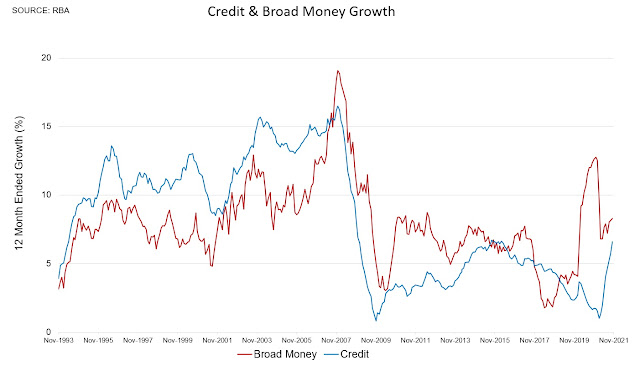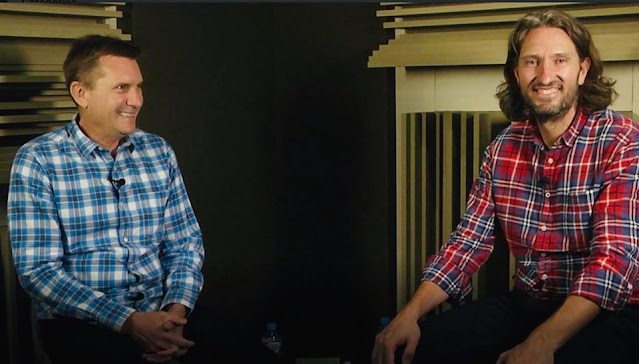Pete Wargent blogspot
Thursday, 23 December 2021
Credit growth hits pandemic high
Wednesday, 22 December 2021
Skilled vacancies strong; hiring blitz ahead
Vacancies highest since 2008
The Department of Employment released its latest job vacancies figures up to November, and they were still running at high levels, with advertisements increasing to a seasonally adjusted 252,300, to be more than 50 per cent higher than pre-COVID levels.
This suggests that if Australia can hold its nerve and successfully manage a sensible reopening we should be in for a hiring blitz in 2022.
Monday, 20 December 2021
New podcast: How to invest for your future (Michael Pascoe)
Sunday, 19 December 2021
Household wealth pushing $14tn...but wages still slow
Thursday, 16 December 2021
Employment soars 366,000 in November
Aussies beating a path to SEQ
SEQ surge
In FY2021, interstate migration to south-east Queensland surged to the highest levels since the post-Olympics exodus from Sydney 16 years ago.
On a net basis interstate migration to Queensland soared to +30,939 in the 2021 financial year, the highest since 2005.
This time around the surge came at the expense of locked down Victoria (-18,300 over the financial year).
Victoria also lost more than 56,000 to net overseas migration, as the 260 long days of lockdown led to an exodus.
The natural growth in the Australian population - births minus deaths - was still +134,800 over the year, but this was partly offset by the huge number of departures from Victoria.
Victoria has followed New South Wales in releasing restrictions since the end of the financial year, and so its popularity is certain to rebound from here.
Overall, Queensland had the highest population growth in FY2021 of +45,900, and Victoria had the lowest at -44,700.
The Big Picture podcast
Top areas to invest (paywall)
Tuesday, 14 December 2021
Australia is full: rental vacancies tighten again
Peak narrative
Monday, 13 December 2021
Mortgage brokers taking record market share
Property Pod: Stephen Koukoulas
2022 outlook
We were delighted to have The Kouk back on the pod this week to roll out his 2022 predictions.
Tune in here (or click on the image below):
You can also tune in at Apple podcasts, or Spotify, and elsewhere.
You can even tune in on YouTube if you want.
Has the market peaked?
Friday, 10 December 2021
China's Lehman moment...again...
Thursday, 9 December 2021
Record wealth for Aussies; mortgage rates to rise
Omicron strain won't impact property trends
Taking the strain
A few thoughts on the latest virus variant, and property trends...check it out here (or click on the image below):
















































